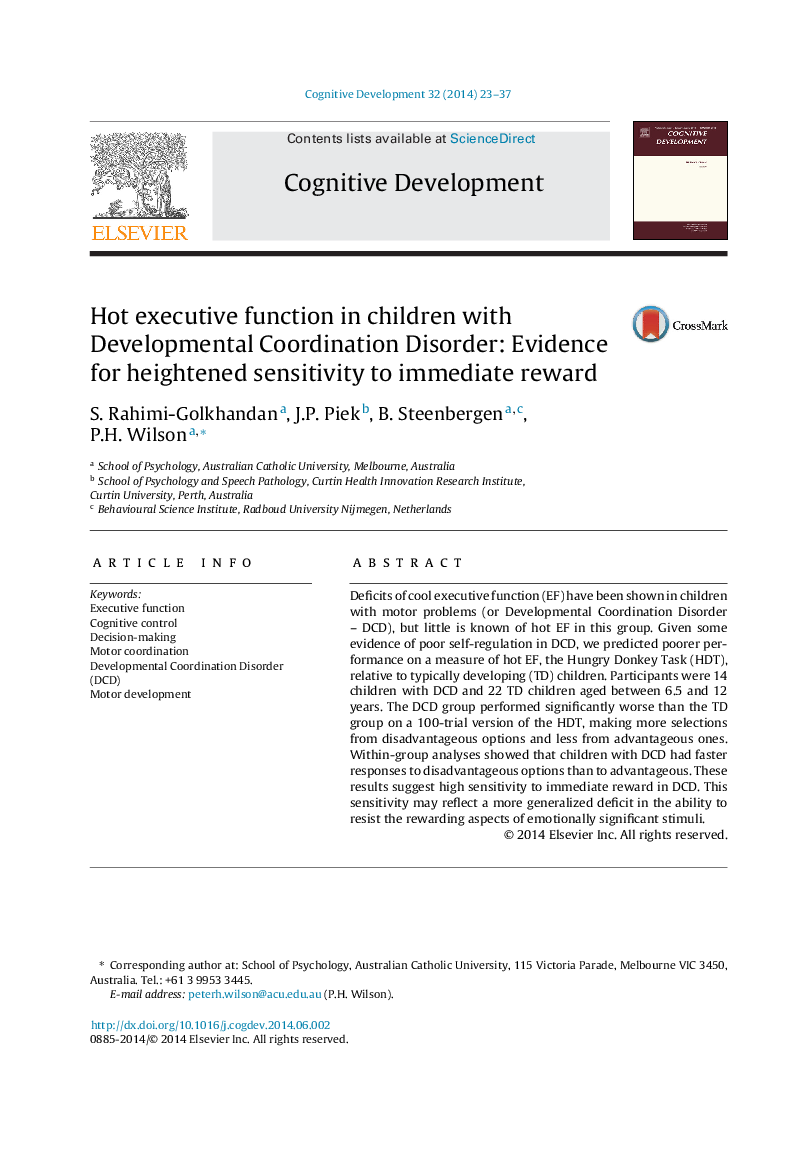| Article ID | Journal | Published Year | Pages | File Type |
|---|---|---|---|---|
| 7272473 | Cognitive Development | 2014 | 15 Pages |
Abstract
Deficits of cool executive function (EF) have been shown in children with motor problems (or Developmental Coordination Disorder - DCD), but little is known of hot EF in this group. Given some evidence of poor self-regulation in DCD, we predicted poorer performance on a measure of hot EF, the Hungry Donkey Task (HDT), relative to typically developing (TD) children. Participants were 14 children with DCD and 22 TD children aged between 6.5 and 12 years. The DCD group performed significantly worse than the TD group on a 100-trial version of the HDT, making more selections from disadvantageous options and less from advantageous ones. Within-group analyses showed that children with DCD had faster responses to disadvantageous options than to advantageous. These results suggest high sensitivity to immediate reward in DCD. This sensitivity may reflect a more generalized deficit in the ability to resist the rewarding aspects of emotionally significant stimuli.
Keywords
Related Topics
Social Sciences and Humanities
Psychology
Developmental and Educational Psychology
Authors
S. Rahimi-Golkhandan, J.P. Piek, B. Steenbergen, P.H. Wilson,
